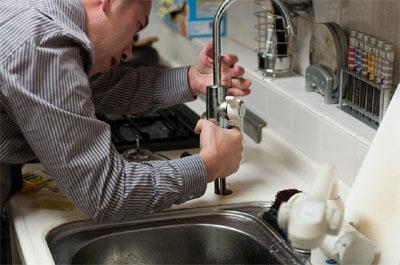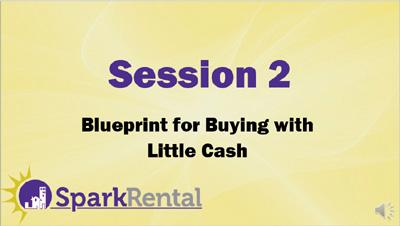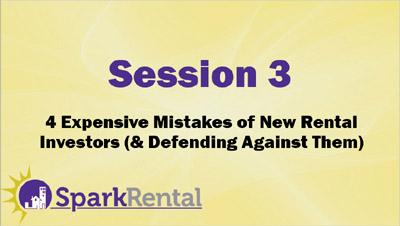The Numbers
As outlined above, Maria bought the duplex for $129,000. She put down 25%, or $32,250, and took a 15-year mortgage for the remaining $96,750.
Maria’s gross rent on the property is $1,600: $850 for the three-bedroom unit, $750 for the two-bedroom unit. After taxes, insurance, repairs, property management fees, city registration fees, and vacancies, Maria netted around $550/month last year. That includes the principal balance on her mortgage however; her positive monthly cashflow averaged around $150/month.
If that doesn’t sound very high, remember that Maria’s mortgage has a 15-year term. She could be earning substantially higher monthly cash flow, but she’s opted for a quicker loan payoff.
That quicker road to being mortgage-free comes with another benefit: far less interest over the course of the loan. At 6% interest, a $96,750 loan will cost $50,207.40 in interest when amortized for 15 years. But the same loan amortized over 30 years costs more than double the interest, at $112,075.20.
One cost that Maria doesn’t have to pay? Private mortgage insurance, or PMI, because she put down 25% when buying. Not having PMI saves Maria around $100/month – it would eat up most of her positive cash flow, if she had to pay it.
On a final note, these cash flow numbers represent an average over time, after accounting for repairs and other expenses. Most months, she collects much more, which goes toward a cash cushion for stability. This savings helps her weather not only the unexpected expenses for her duplex, but for her other businesses as well.
 Challenges with Inspections, Licenses, and The Man
Challenges with Inspections, Licenses, and The Man
Maria had her first run-in with the local city government when the inspectors made her spend $2,525 on fence alterations. But that wasn’t her only bad experience with the City.
“In this, my third year of investment property ownership, I had my first tenant turnover,” explains Maria. “Upon purchase, the unfinished attics were kept padlocked and tenants had no access. The home inspector recommended a handrail be installed, but it wasn’t a concern at the time since they were kept locked.” A decision that the local government made them regret when they came through to inspect during the turnover.
“Unfortunately, the City required railings whether or not it was kept locked and tenants had no access.” The city government imposes aggressive regulation on landlords, as Maria began to discover as a first-time landlord. It turned out the prior owner had skipped the mandatory inspection in the last turnover, which is why the City hadn’t forced them to install a handrail.
“Our property manager also had to hire a contractor to repaint the front and back porches to comply with local lead paint laws. Total cost was $1,042.”
Headaches from heavily-regulated local governments has been a recurring theme with new landlords we’ve spoken with. The average voter is all for regulating landlords heavily, until they become a landlord themselves and discover just how expensive and onerous the endless inspections, repair orders, fees and fines are. Tim, who
house hacked a duplex in Michigan, discovered just how relentless local inspectors and regulators can be when he added a small wooden patio behind his duplex.
Maria’s Advice for Other Parent Investors
Maria falls into the “less leverage” camp. Some investors like to buy with the bare minimum money down, but not Maria.
“My recommendation would be to save at least a 25% down payment for an investment property, have a cash reserve of at least six months’ rent, and be able to afford the mortgage if it is vacant.”
Regardless of how you feel about leverage and debt, it is absolutely true that landlords need a cash reserve. It doesn’t need to be a pirate chest’s worth of booty, but this was one of the
8 real estate investing lessons I wish I’d learned earlier.
And then there are the demands of parenting: “Being a mother is very demanding, as is working, particularly when you are juggling both at once, with children at home and working at the same time. With rental properties, it can be months of smooth sailing with no issues whatsoever, followed by a 9 PM phone call that there’s a squirrel in a tenant’s bathroom, or a call from the City saying you need to replace your fence, etc.”
Maria has had success both self-managing and using a property manager. Upon purchasing, she managed both units herself. “But when one side turned over, I hired a property manager for that side. The new manager was able to get $150/month more rent than the previous tenant (who came with the property) was paying, so it is still earning me more. She also handles repairs, city property inspections, and state lead inspections.”
Stay Liquid, Stay Prepared
Rental properties do come with surprises, but for all the curveballs the duplex has thrown at her, Maria has still come out far ahead.
Maria’s final advice for other working and/or single parents, looking to start building passive income?
“Expect the unexpected. Research property managers before hiring one – all are not equal. Save money, and buy when you’re prepared.”
Saving money may not be “the fun part” of real estate investing, but it makes a huge difference when it comes time to invest! Follow the seven steps to
living on half your income, and investing the rest, so you can start bringing in some passive income of your own.
What challenges have you faced as a parent investor? Or being a home-based entrepreneur, for that matter? Have any secret-ninja tips to share? Spread the love!
Read On About Building Your Own Passive Income:
 Being a parent is endless work. And if entrepreneurship also requires endless work, then what is infinity multiplied by infinity?
Then double the responsibilities again, for a single mom.
And, stay with me here, imagine that our heroine also invests in real estate on the side?
Yet it’s the rental income from her duplex that has helped stabilize Maria Moser’s income, and become crucial to her long-term financial planning. Here’s Maria’s story, one that parents, entrepreneurs, and real estate investors alike will appreciate.
Being a parent is endless work. And if entrepreneurship also requires endless work, then what is infinity multiplied by infinity?
Then double the responsibilities again, for a single mom.
And, stay with me here, imagine that our heroine also invests in real estate on the side?
Yet it’s the rental income from her duplex that has helped stabilize Maria Moser’s income, and become crucial to her long-term financial planning. Here’s Maria’s story, one that parents, entrepreneurs, and real estate investors alike will appreciate.
 Being a parent is endless work. And if entrepreneurship also requires endless work, then what is infinity multiplied by infinity?
Then double the responsibilities again, for a single mom.
And, stay with me here, imagine that our heroine also invests in real estate on the side?
Yet it’s the rental income from her duplex that has helped stabilize Maria Moser’s income, and become crucial to her long-term financial planning. Here’s Maria’s story, one that parents, entrepreneurs, and real estate investors alike will appreciate.
Being a parent is endless work. And if entrepreneurship also requires endless work, then what is infinity multiplied by infinity?
Then double the responsibilities again, for a single mom.
And, stay with me here, imagine that our heroine also invests in real estate on the side?
Yet it’s the rental income from her duplex that has helped stabilize Maria Moser’s income, and become crucial to her long-term financial planning. Here’s Maria’s story, one that parents, entrepreneurs, and real estate investors alike will appreciate.




 Challenges with Inspections, Licenses, and The Man
Challenges with Inspections, Licenses, and The Man




















Love this story! Keep these up, I love hearing about how other “real-life” people (especially moms) can get off the ground and bring in extra income!
We certainly will Maddie! So glad to hear that Maria’s story spoke to you, it spoke to us as well!
As a mom who works full-time and manages a few rentals myself, I can totally relate. A million balls up the air that you’re trying to juggle. The rental income makes a huge difference, and has gotten me through some very, very lean months.
Glad to hear your rental income has helped you get through the lean times. We all have them, but rental owners have the benefit of some extra padding and stability.
Thank you for sharing! I will double-down on the need for a good handyman. If you can do the work yourself (and do it up to code as you’ve discussed with inspectors), that helps tremendously. If you’re not prepared in advance with a way to make minor repairs, you’ll wind up paying a lot more later on.
Of course, it also depends on the tenant themselves. Not every tenant likes to keep up their residence as well as others. Some tenants are harder on their stuff than others, which will cause more frequent repair.
I admire her dedication. If Maria can do it, we can too!
Amen Louis!